Blaise Pascal Quotes
Most popular Blaise Pascal Quotes

Continuous eloquence wearies.

By thought I comprehend the world.

Eloquence is a painting of thought.

By thought I embrace the universal.

The property of power is to protect.

When passions become masters, they are vices.

The last thing one knows is what to put first.

The struggle alone pleases us, not the victory.

Too much and too little education hinder the mind.

The heart has reasons that the reason knows not of.
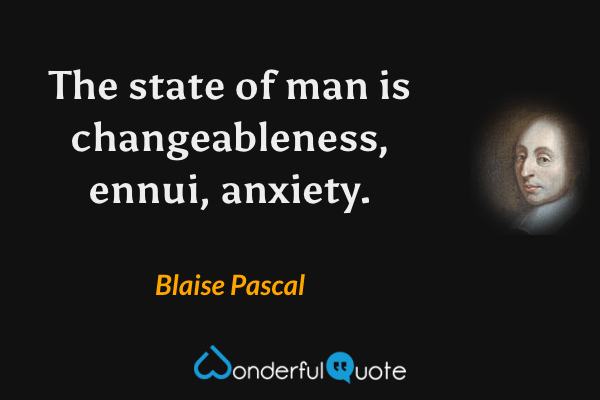
The state of man is changeableness, ennui, anxiety.

Kind words do not cost much yet they accomplish much.

The heart has reasons that reason does not understand.

Do you wish people to believe good of you? Don't speak.

To make light of philosophy is to be a true philosopher.

The heart has its reasons which reason knows nothing of.

Extremes meet. . . opposite extremes have much in common.
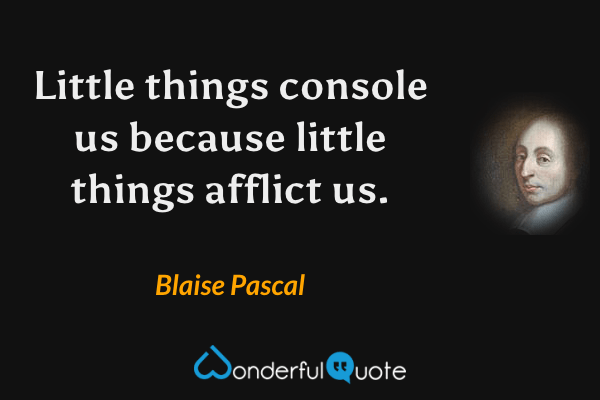
Little things console us because little things afflict us.

The heart has its reasons, which reason does not understand.

We know the truth, not only by the reason, but by the heart.

To go beyond the bounds of moderation is to outrage humanity.

Those we call the ancients were once really new in everything.

When everything moves at the same time, nothing moves in appearance.

There would be too great a darkness, if truth had not visible signs.

Man is only a reed, the weakest in nature, but he is a thinking reed.
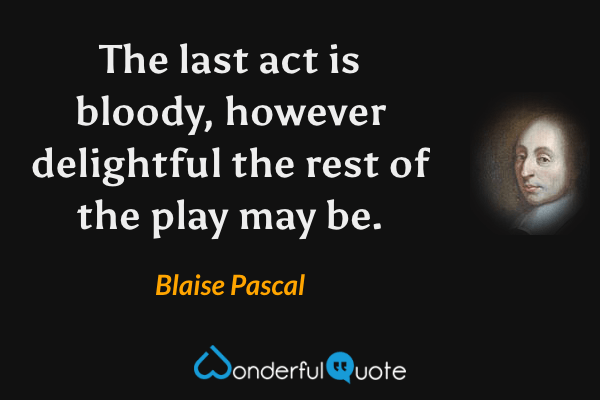
The last act is bloody, however delightful the rest of the play may be.

Justice without force is powerless; force without justice is tyrannical.

Experience makes us see an enormous difference between piety and goodness.

Most of the evils of life arise from man's inability to sit still in a room.

Men never do evil so fully and cheerfully as when we do it out of conscience.
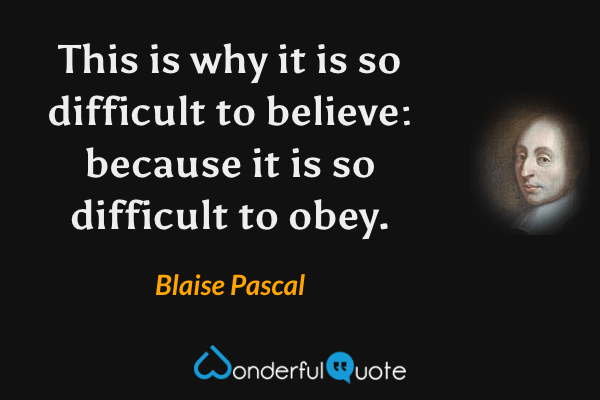
This is why it is so difficult to believe: because it is so difficult to obey.
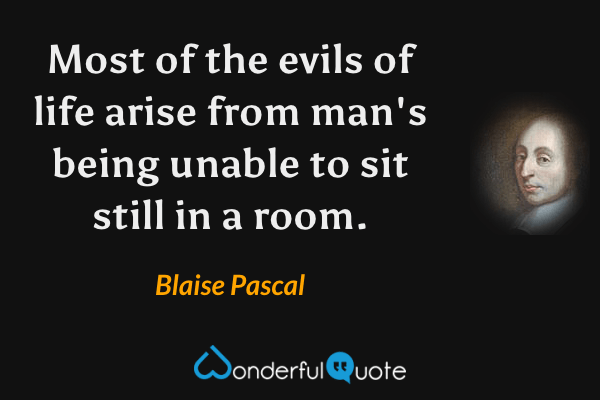
Most of the evils of life arise from man's being unable to sit still in a room.

Small minds are concerned with the extraordinary, great minds with the ordinary.
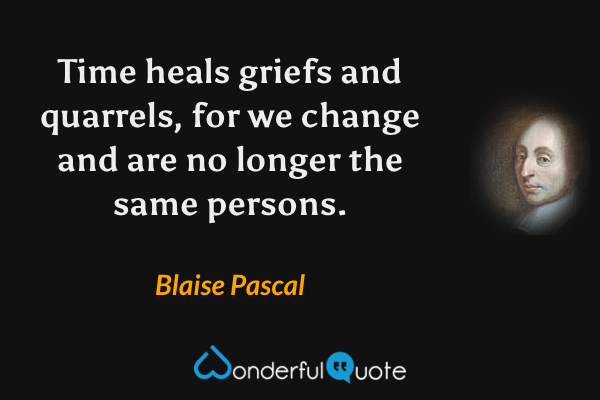
Time heals griefs and quarrels, for we change and are no longer the same persons.
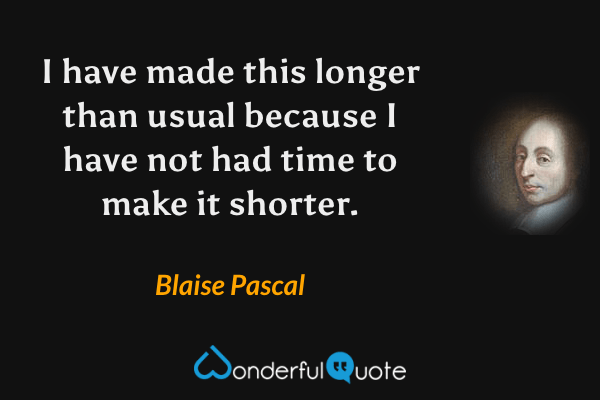
I have made this longer than usual because I have not had time to make it shorter.

Few men speak humbly of humility, chastely of chastity, skeptically of skepticism.

True eloquence takes no heed of eloquence, true morality takes no heed of morality.

Let no man say that I have said nothing new; the arrangement of the subject is new.

The most powerful cause of error is the war existing between the senses and reason.

All the glory of greatness has no luster for men who are in search for understanding.

All this visible universe is only an imperceptible point in the vast bosom of nature.

If all men knew what others say of them, there would not be four friends in the world.

Discourses on humility are a source of pride in the vain and of humility in the humble.

The least movement is of importance to all nature. The entire ocean is affected by a pebble.

What is subject of faith should not be submitted to reason, and much less should bend to it.

Men never do evil so completely and cheerfully as when they do it from religious conviction.

The whole visible world is an imperceptible atom in the ample bosom of nature. No idea approaches it.

It is not shameful for man to succumb under pain, and it is shameful for him to succumb under pleasure.
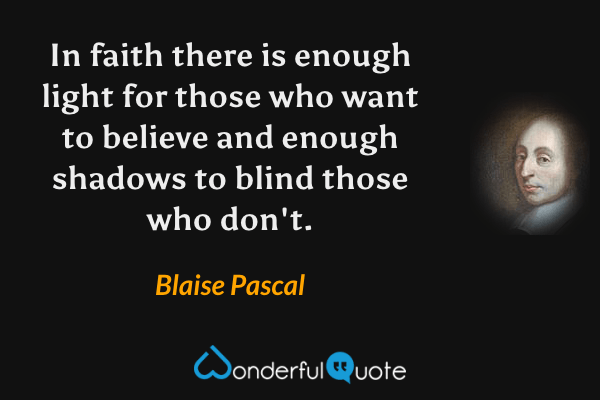
In faith there is enough light for those who want to believe and enough shadows to blind those who don't.

The virtue of a man ought to be measured not by his extraordinary exertions, but by his everyday conduct.

Words differently arranged have different meanings, and meanings differently arranged have different effects.

If we could just learn to sit still for ten minutes and do without distractions, there would be no more wars.

Diplomacy is the art of saying things in such a way that those to whom we speak may listen to them with pleasure.

I have often said that man's unhappiness springs from one thing alone, his incapacity to stay quietly in one room.

I have discovered that all man's unhappiness derives from only one source—not being able to sit quietly in a room.

Imagination disposes of everything; it creates beauty, justice, and happiness, which are everything in this world.

When we see a natural style, we are quite surprised and delighted, for we expected to see an author and we find a man.

Since we cannot be universal and know all that is to be known of everything, we ought to know a little about everything.

Justice and power must be brought together, so that whatever is just may be powerful, and whatever is powerful may be just.
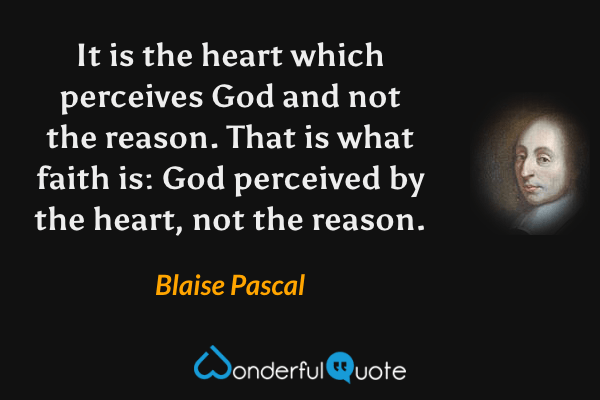
It is the heart which perceives God and not the reason. That is what faith is: God perceived by the heart, not the reason.

It is your own assent to yourself, and the constant voice of your own reason, and not of others, that should make you believe.

I will paint for man not only the visible universe, but all that he can conceive of nature's immensity in the womb of an atom.

Human society is founded on mutual deceit; few friendships would endure if each knew what his friend said of him in his absence.
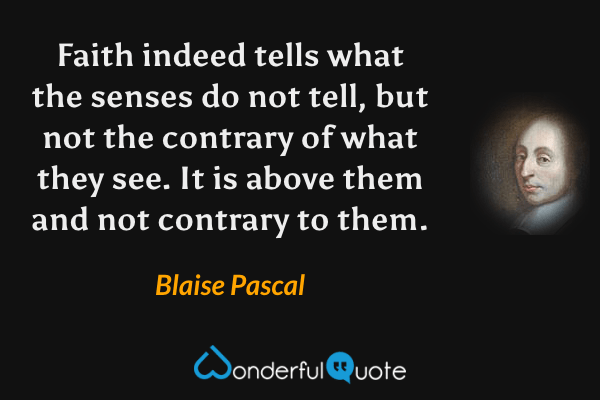
Faith indeed tells what the senses do not tell, but not the contrary of what they see. It is above them and not contrary to them.

People are generally better persuaded by the reasons which they have themselves discovered than by those which come from the minds of others.

Justice is what is established; and thus all our established laws will necessarily be regarded as just without examination, since they are established.

The will is one of the chief factors in belief, not that it creates belief, but because things are true or false, according to the aspect in which we look at them.

There are some people who speak well but write badly. A reason, the audience and the situation stimulate them to draw from their minds more than they could think of without such a challenge.

Can anything be more ridiculous than that a man should have the right to kill me because he lives on the other side of the water, and because his ruler has a quarrel with mine, though I have none with him?

All our dignity consists of thought. It is from there that we must be lifted up and not from space and time, which we could never fill. So let us work on thinking well. That is the principle of morality.

We conceal it from ourselves in vain — we must always love something. In those matters seemingly removed from love, the feeling is secretly to be found, and people cannot possibly live for a moment without it.
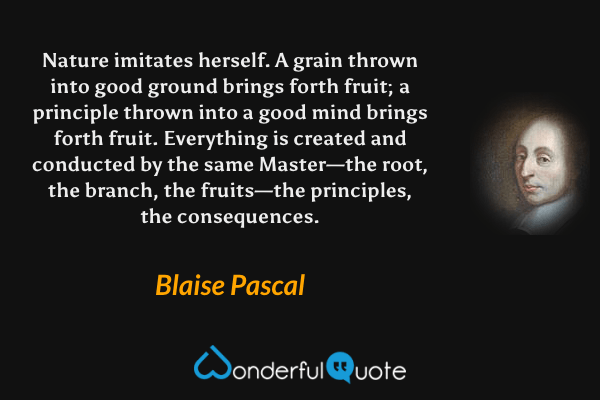
Nature imitates herself. A grain thrown into good ground brings forth fruit; a principle thrown into a good mind brings forth fruit. Everything is created and conducted by the same Master—the root, the branch, the fruits—the principles, the consequences.

Thus so wretched is man that he would weary even without any cause for weariness ... and so frivolous is he that, though full of a thousand reasons for weariness, the least thing, such as playing billiards or hitting a ball, is sufficient enough to amuse him.
Men never do evil so completely and cheerfully as when they do it from a religious conviction.
People are generally better persuaded by the reasons which they have themselves discovered than by those which have come into the mind of others.
Time heals griefs and quarrels, for we change and are no longer the same persons. Neither the offender nor the offended are any more themselves.


